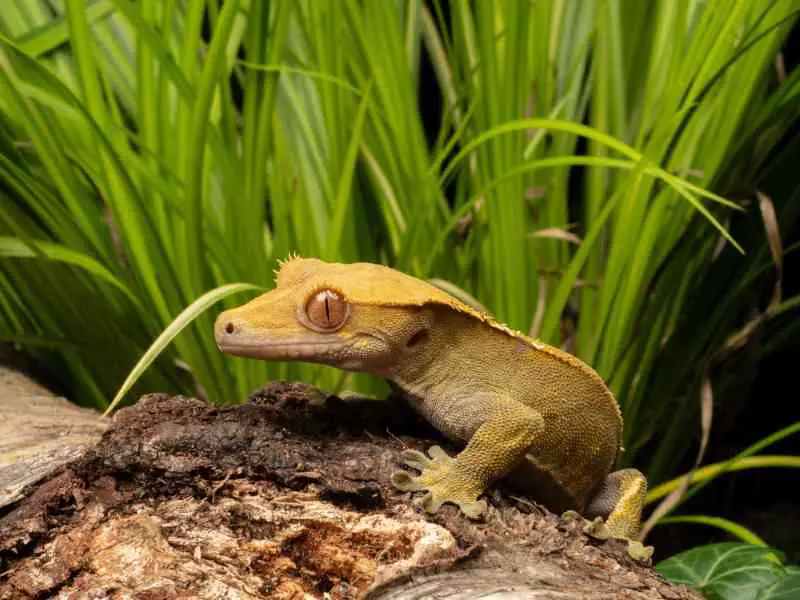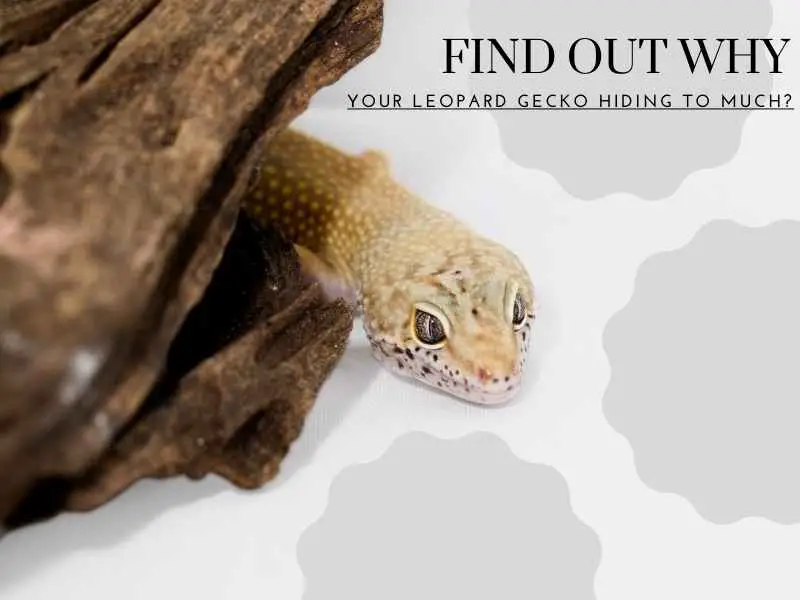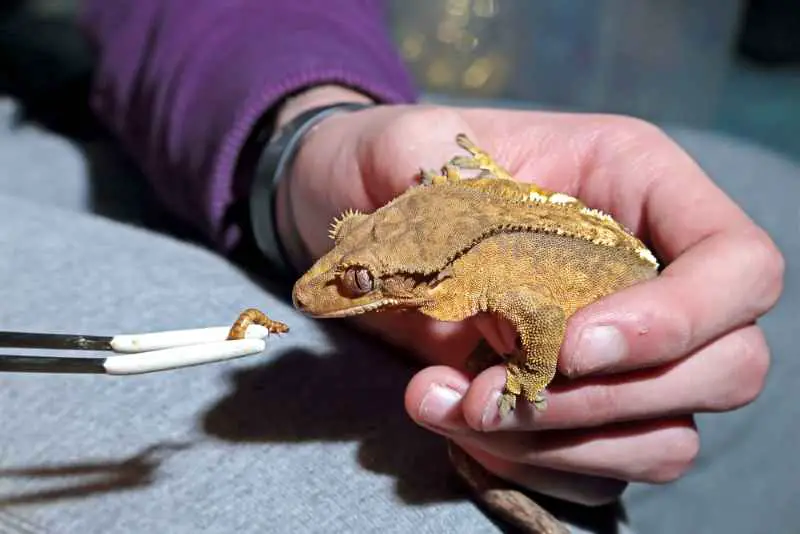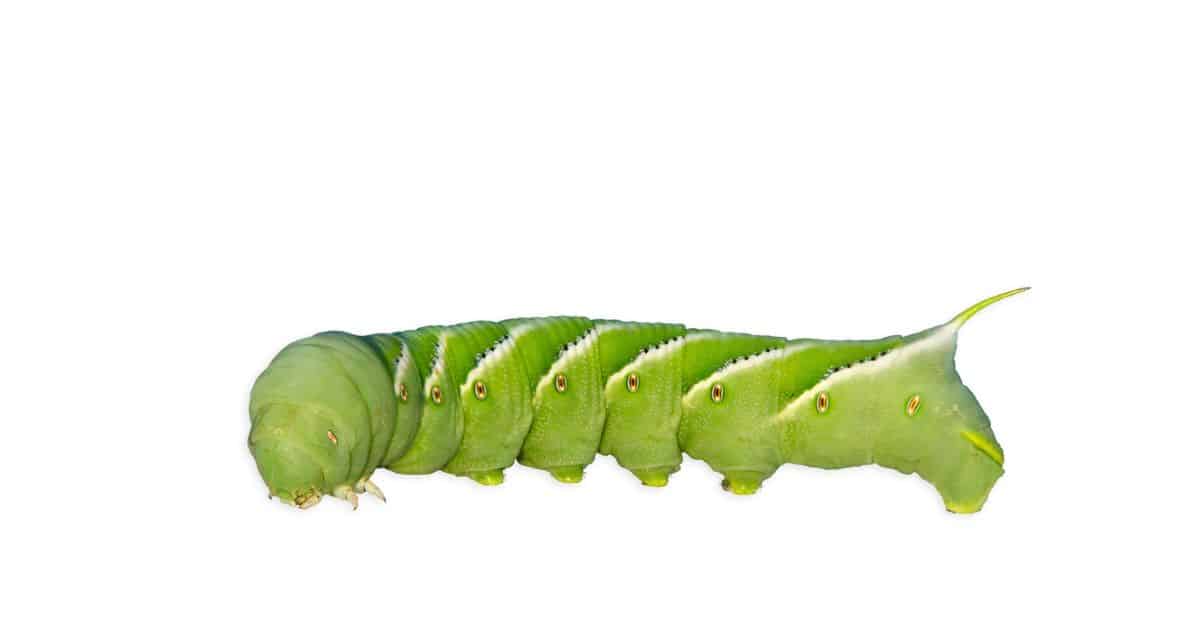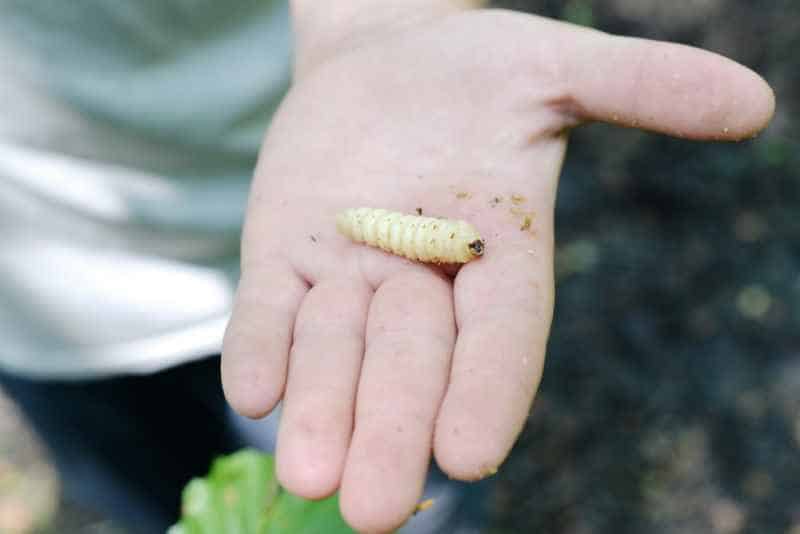Why Is Your AFTG Rubbing Against Things?

Geckos, especially the African fat-tailed geckos, can do many exciting things in their enclosures (they do stay busy!), making them fun to watch. These geckos eat, nap, burrow, lick, and rub against things. While those first few things seem like normal gecko behavior, watching your gecko rub against things might strike you as odd.
Your gecko is rubbing against things in his living space because he’s shedding or trying to mark his territory. Often, you can do things to see if this is normal or something you need to be concerned about, such as checking if there’s any excess skin is still on a recently shed gecko.
Read on and see what you can do to diagnose your gecko’s behavior. Then you can determine if it’s something that you need to deal with because most of the rubbing is a response to several different stimuli and not something you need to interfere with directly.
Contents
Why Do Geckos Rub Against Things?
Geckos rub against things to mark their territory. Even when they’re alone, they’re territorial creatures. They can mark their territory by rubbing their bellies against the ground, secreting a substance to let males know to stay away and for females to know they’re ready to mate.
They also occasionally rub against things to relieve themselves from itching and to clean themselves after eating or getting dirty. However, the most common time they start rubbing against things is whenever they try to shed their skin.
How Do African Fat-Tailed Geckos Shed?
African fat-tailed Geckos shed by rubbing against things in their enclosure. They tend to have their skin start to appear dull before they need to shed. It takes every 3–4 weeks for them to shed skin. It’s essential to maintain the humidity of their cage while the shedding goes on.
Then the skin will be left off, and they’ll have new bright, beautiful skin. So, if you can see your gecko’s skin changing, then the rubbing that comes afterward will be because of his need to shed.
Additionally, after the shedding is done, make sure to keep your gecko’s old skin in the enclosure. Doing so will provide humidity, and your gecko can also eat the old skin, helping him to recover his energy after the tiring shedding process.
Geckos can’t take things off as we can, so they rub against rough objects to tear and pull the extra layer of skin off. There’s no need to worry if your AFTG does this; it won’t hurt him as long as you put rough (not sharp or abrasive) material in his enclosure that he can rub against.
Keep track of your gecko’s shedding cycle, and you’ll see when he starts rubbing against things. If your AFTG is shedding, you know that’s the reason, and then you can take steps to get all the skin off if the rubbing doesn’t stop.
What Should I Do If My Gecko Has Already Shed?
However, sometimes Geckos tend to rub against their enclosure even though they’ve already shed, and when that happens, it tends to be worrying for the owners.
If you’ve noticed your African fat-tailed gecko rubbing against things even though he has already shed, pick up your gecko and examine him closely.
Little pieces of shed skin could get stuck in smaller places around your gecko, often between the toes and around the face. Sometimes geckos rub against things to get the extra skin off or relieve itching, although sometimes the rough rubbing doesn’t give them the relief they need. In that case, then you need to help them out.
Soaking your AFTG inside a warm water bath can help wash loose any stuck skin that’s in hard-to-reach places. You can also use a wet cloth to gently rub the loose skin away if the bath hasn’t gotten it all.
Additionally, you can raise the humidity of your gecko’s enclosure to help him continue to shed any excess skin. Leaving the old skin inside the gecko’s enclosure can provide extra moisture in the air and allow the gecko to eat the excess skin. Your gecko can regain energy after the draining process of shedding by eating up the excess skin.
Finally, track your gecko’s growth. Sometimes sexually mature geckos that want to mate will rub against the enclosure or the bottom of the tank, often to mark their territory and get themselves ready if there are females available. If your male gecko is at that stage of his life, then it’s normal for him to rub himself against things.
Is My Gecko Okay?
If you’re concerned about your gecko’s shedding habits, you might worry about how rubbing against things affects its health. If you’ve made sure to keep your gecko well fed and hydrated in a humid and warm environment, and given him access to his old skin, then your gecko should be okay.
Your gecko is okay, and you can use the tips outlined above to make sure that your gecko is kept free from any itching. However, if soaking your gecko in warm water isn’t helping, or his rubbing is causing him to bleed, don’t hesitate to consult your local veterinarian.
What Not To Do if Your Gecko Is Rubbing Against Things
You shouldn’t panic if you notice your African fat-tailed gecko is rubbing against things. Rubbing against things, even excessively, is normal gecko behavior. Your AFTG might be in the mood to mate, shedding, dealing with stuck skin, or just itchy.
You can go down the list and see what could cause the excess rubbing, but don’t try to interfere or instantly take your gecko to the vet.
Instead, it’s best to avoid making any drastic changes. If the rubbing is from your gecko shedding, changing their environment will cause them stress, and stressed geckos don’t shed well. Again, don’t panic. Continue to observe for a while, ticking off boxes as you go.
Only if you see signs of harm on your gecko is when you should take them to the vet or closely monitor them to see what could be wrong.
Final Thoughts
Several reasons can cause African fat-tailed geckos to rub against things, all of which are perfectly natural. The geckos could be shedding, marking their area, ready to mate, or getting clean.
Just keep an eye on your gecko and ensure he has the perfect environment to live in, and the rubbing should stop. If the rubbing doesn’t, and your gecko has just shed, examine your gecko for stuck skin.
As long as you keep a cool head and observe your gecko regularly, he’ll continue to live a long and happy life under your care.
